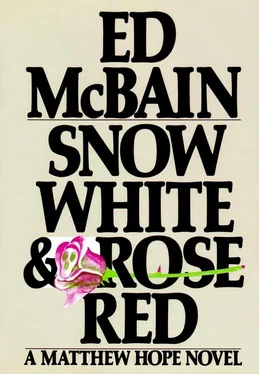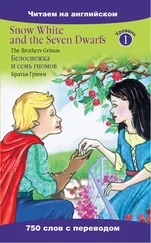“Then you remember her,” Rawles said.
“I remember the spot on the dress and she gave me a hard time, is what I remember. I finally took the dress, but I told her I wasn’t making any promises.”
“How about the girl herself? Who was she?”
“Who knows?” Barish said. “One of the hippies used to live around here with a hundred other kids in the same apartment. You ever notice there are no more hippies left anywhere in the world but Florida? Only down here do you still see the long hair and the—”
“What was her name?” Rawles asked. “Do you remember her name?”
“You expect me to remember a name from maybe a year ago?”
“Well, you wrote ‘KLBN’ in the dress, so what does that mean to you?”
“Now? A year later? It means ‘KLBN,’ is what it means.”
“Is that when she brought the dress in?”
“Maybe not a whole year. It was in the summertime, you could die down here in the summertime, the humidity. June or July, around then. August is even worse. September ain’t no picnic, neither.”
“But this was in June or July, is that right?” Bloom asked.
“Around then. May, it coulda been, we had a hot May last year. I can’t say for sure. Sometime around then. All I know for sure is this dress had the ink spot right where it still is, and the girl gave me such an argument, I coulda shot her. Did somebody shoot her?”
“Yes,” Rawles said.
“Where? I don’t see no hole on the dress. A bullet would leave a hole, no?”
“In the throat,” Bloom said.
“Hoo-boy,” Barish said.
“And cut out her tongue afterward,” Rawles said.
“Please, I got a weak stomach,” Barish said.
“How old was she, this girl who brought the dress in?” Bloom asked.
“Nineteen, twenty? Who can tell? By me, anybody under thirty, they all look the same age.”
“How tall was she?”
“Five-eight? Five-nine?”
“White?” Rawles asked.
“Sure, white.”
“What color hair?”
“Blonde. Long blonde hair, it came halfway down her back.”
“Sounds right,” Rawles said to Bloom. “What color were her eyes?”
“I don’t remember.”
“Would you remember her address?” Bloom asked.
“I don’t take addresses. Only the telephone number in case they leave the garment here forever.”
“Her telephone number, then? Do you remember it?”
“I got to be Einstein to remember a telephone number from last May.”
“Was she driving?”
“No. I can see whoever parks here, I watch the parking lot like a hawk so the hardware or the cowboys don’t use it for their customers. She walked in. No car.”
“Alone?” Rawles asked.
Barish said nothing.
“Mr. Barish? Was she—”
“I’m trying to think, hold your horses a minute, willya?”
The detectives waited.
“She had somebody with her,” Barish said at last. “Another hippie like her.”
“Male or female?” Bloom said at once.
“A girl, a girl,” Barish said. “Don’t ask me hair, eyes, whatever, ’cause I couldn’t tell you if you stuck needles under my fingernails.”
“White or black?” Bloom asked.
“White.”
“A girl about the same age?”
“About. Who remembers?”
“You don’t remember the color of her hair?”
“I don’t.”
“Was she blonde?” Rawles asked.
“I just tell him I can’t remember,” Barish said to Bloom, “so he asks me was she blonde.”
“You’d remember two blondes coming in together, wouldn’t you?” Rawles said.
“I only remember the pretty one was blonde, the one who gave me the argument.”
“Then the other one wasn’t blonde,” Rawles said.
“I guess she wasn’t. Maybe.”
“And she wasn’t pretty, either.”
“A dog. You know what a dog is? This girl was a dog.”
“The other one was pretty, though, huh?” Bloom said. “The one who brought the dress in?”
“A knockout. You know what a knockout is? This girl was a knockout.”
“And you think she lived somewhere in the neighborhood, huh?” Rawles said.
“Who said?”
“You did. You said she lived in an apartment with a hundred other hippies.”
“Oh. I was only saying. I don’t know that for a fact. But if she walked in, she must’ve lived in the neighborhood, no?”
“You ought to become a cop,” Bloom said, and smiled.
“A traffic cop is what I ought to become, those bastards from the hardware and the cowboys.”
“What was she wearing?” Rawles asked. “The blonde.”
“Blue jeans and a T-shirt,” Barish said at once. “No bra, no shoes. A regular hippie.”
“And the other one?”
“A brown uniform. Like a uniform.”
“What kind of uniform?”
“Brown, I told you.”
“She wasn’t a meter maid, was she?”
“No, no, I could use a meter maid here, believe me, all these bastards parking on private property.”
“A brown uniform,” Bloom said, thinking out loud.
“She wasn’t a Girl Scout, was she?” Rawles asked. “A troop leader, something like that?”
“No, they wear green, the Girl Scouts, I clean a lot of uniforms for them. The girls’ uniforms smell even worse than the boys’, did you know that? They sweat a lot, girls. This wasn’t a Girl Scout uniform, this was brown . And she had a little plastic tag with her name on it, right here on the chest.”
“A waitress?” Bloom said. “Did she look like a waitress?”
“Coulda been, who knows?” Barish said. “Little name tag here on the chest, it could be.”
“A waitress,” Bloom said, and looked at Rawles.
“A nice chest, too,” Barish said. “A very nice chest on that girl.”
Both detectives were wondering how many restaurants in Calusa featured waitresses in brown uniforms.
Sarah looked radiantly beautiful.
She was dressed entirely in white. White slacks and sandals, a white scoop-necked blouse. She smelled of soap. She told me she was not allowed to have perfume; she guessed they thought she would try to drink it or something. She told me she had showered and dressed a full two hours before I was expected. None of the patients were allowed to shower unattended, she said; a member of the staff was always watching. She wondered aloud if anyone had ever tried to drown herself in the shower. Or perhaps tried to eat a bar of soap.
We were sitting in what the hospital called its Sun Room.
Wide windows covered the entire eastern wall of the second-story room, creating a greenhouse effect marred only by the bars on the windows.
“They’re afraid we’ll try to jump out,” Sarah explained.
Across the room, a man was playing checkers with a woman. Visitors and patients sat everywhere around us on wicker chairs with yellow and green cushions. I wondered if Mr. Holly would be visiting his wife, Becky, today. Sarah listened attentively as I told her about my conversations with Mark Ritter and the arresting officer and Dr. Nathan Helsinger. Her eyes never left my face. Her attention was complete; it never wandered, never wavered. I could not imagine her as someone who was not in complete possession of all her mental faculties. My own attention bordered on scrutiny. I was looking for clues to support the possibility that everything Dr. Helsinger had told me was true.
“What did you think of him?” Sarah asked.
“Helsinger? He seemed competent.”
“Do you mean mentally competent?” she asked, and smiled.
“I meant... no, no.”
“Mentally in competent then?”
She was still smiling.
Читать дальше












